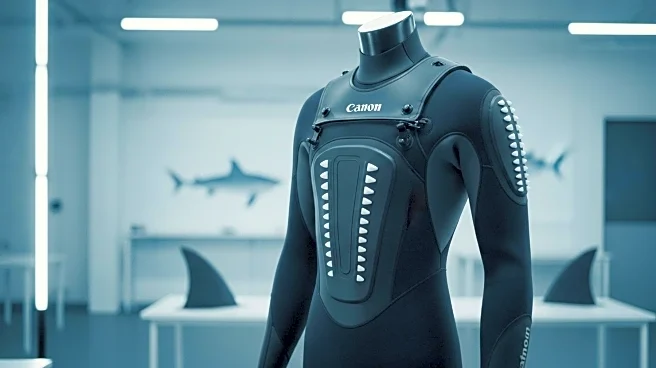What's Happening?
Researchers from Flinders University in Adelaide, Australia, have tested bite-resistant wetsuits by allowing sharks to bite the materials at sea. The study found that these wetsuits can significantly reduce injuries from shark bites compared to standard neoprene suits. The materials tested include Aqua Armour, Shark Stop, ActionTX-S, and Brewster, all of which showed effectiveness in minimizing damage associated with severe hemorrhaging and tissue loss. The research highlights the potential of these materials to offer improved protection for swimmers, surfers, and divers in shark-prone areas.
Why It's Important?
The development of bite-resistant wetsuits represents a significant advancement in personal safety for individuals engaging in aquatic activities in regions with large shark populations. By reducing the severity of injuries, these wetsuits can enhance the safety of ocean sports and potentially save lives. The study underscores the importance of innovation in protective gear, providing a non-invasive solution that does not rely on altering shark behavior. This approach could lead to broader acceptance and use among ocean enthusiasts, contributing to safer interactions with marine life.
Beyond the Headlines
The research into bite-resistant wetsuits also raises ethical considerations regarding human interaction with wildlife. While the suits offer protection, they do not eliminate the need for caution and respect for marine ecosystems. The study encourages responsible behavior and awareness of the risks associated with shark encounters, promoting a balanced approach to ocean activities.











